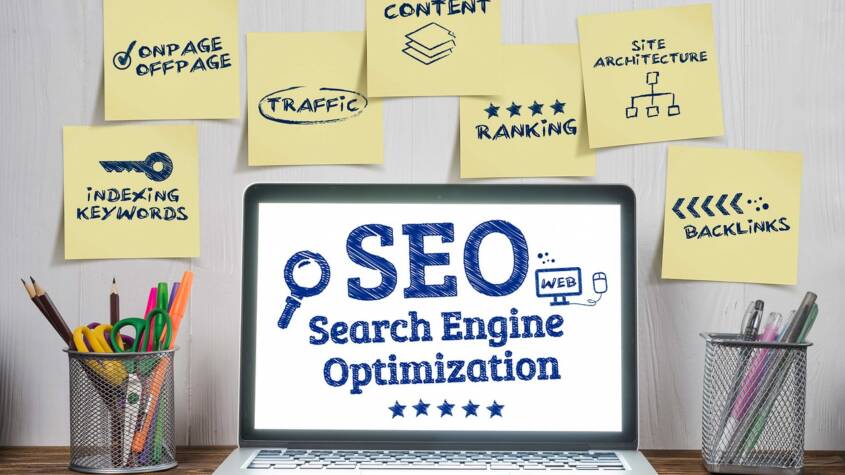
SEO services improve a website’s visibility on search engines by optimizing content, structure, and technical elements. This increases the chances of attracting organic traffic from users searching for relevant information or products. Effective SEO services help businesses rank higher on search results, leading to more targeted visitors and potential customers.
These services often include keyword research, on-page optimization, link building, and performance analysis. Professionals tailor strategies based on specific business goals and industry trends to deliver measurable results. Understanding how SEO works is essential for any business looking to compete online.
With search engines constantly updating their algorithms, ongoing SEO management ensures a website remains optimized and competitive. Investing in SEO services can provide long-term benefits by steadily increasing site authority and user engagement.
Core SEO Services
Effective SEO involves optimizing website content, structure, and external factors to improve search engine rankings. It includes strategies focused on enhancing user experience, website functionality, and authority.
On-Page Optimization
On-page optimization targets elements directly on the website to improve relevance and usability. This includes keyword research, integrating terms naturally in titles, headers, and content. Meta titles and descriptions should be clear and concise to boost click-through rates.
Content quality is critical. It must address user intent and provide valuable, original information. Images also require optimization through descriptive alt text and proper sizing for faster loading.
Internal linking helps distribute page authority and guides visitors through the site. Proper URL structures and schema markup further enhance on-page SEO by making content easier for search engines to understand.
Technical SEO
Technical SEO focuses on website infrastructure to ensure efficient crawling and indexing. Key areas include improving site speed, fixing broken links, and implementing secure protocols like HTTPS. Mobile-friendly design is essential, as search engines prioritize mobile-first indexing.
XML sitemaps allow search engines to discover pages faster. Canonical tags prevent duplicate content issues by specifying the preferred version of a page. Structured data markup helps search engines display rich snippets, enhancing visibility in search results.
Regular audits identify technical issues that could hinder performance. Ensuring proper redirect chains and fixing crawl errors are vital components of technical SEO.
Off-Page SEO
Off-page SEO involves building the website’s authority through external sources. The primary focus is on backlink acquisition from reputable and relevant sites. Quality backlinks signal trustworthiness to search engines.
Social media presence can indirectly support SEO by increasing brand exposure and driving traffic. Local SEO tactics, such as managing online reviews and optimizing Google My Business profiles, improve visibility in local search results.
Engaging in guest blogging, partnerships, and influencer outreach expands reach and builds valuable industry connections that benefit ranking potential.
Specialized SEO Solutions
Different websites require tailored SEO approaches to address specific challenges and goals. Precision in targeting geographic areas, online shopping optimization, and comprehensive performance analysis are key areas that enhance digital presence and effectiveness.
Local SEO
Local SEO focuses on improving visibility for businesses within a specific geographic area. It involves optimizing Google My Business profiles, ensuring consistent name, address, and phone number (NAP) information across directories, and generating customer reviews.
It targets local keywords relevant to the business and uses localized content strategies. Local citations and backlinks from regional websites also play an important role. These tactics drive foot traffic and increase local search rankings.
Structured data markup can help search engines better understand business locations and services. This makes it easier to appear in “near me” queries, voice search, and map results.
Ecommerce SEO
Ecommerce SEO enhances online stores by optimizing product pages, categories, and metadata. It focuses on clear product descriptions, high-quality images, and user-friendly navigation to improve rankings and user experience.
Technical SEO elements such as site speed, mobile responsiveness, and secure checkout processes are critical. Product schema markup supports rich snippets, which can increase click-through rates by displaying prices, reviews, and availability in search results.
Keyword research targets transactional queries and long-tail phrases buyers use. Internal linking between related products and content increases site authority and helps search engines crawl the website efficiently.
SEO Audits
SEO audits assess a website’s health and identify areas for improvement. This includes technical factors like crawl errors, broken links, and site speed, as well as on-page elements such as keyword usage and content quality.
They evaluate backlink profiles to detect spammy or low-quality links that could harm rankings. An audit also reviews mobile usability and security features like SSL certificates.
Reports typically include prioritized action items with detailed explanations. These guides help SEO professionals or site owners implement necessary changes systematically for better performance.
Lawn Care in Oakville: Expert Tips for a Healthy, Green Yard
Lawn care in Oakville requires attention to the region’s unique climate and soil condition…




